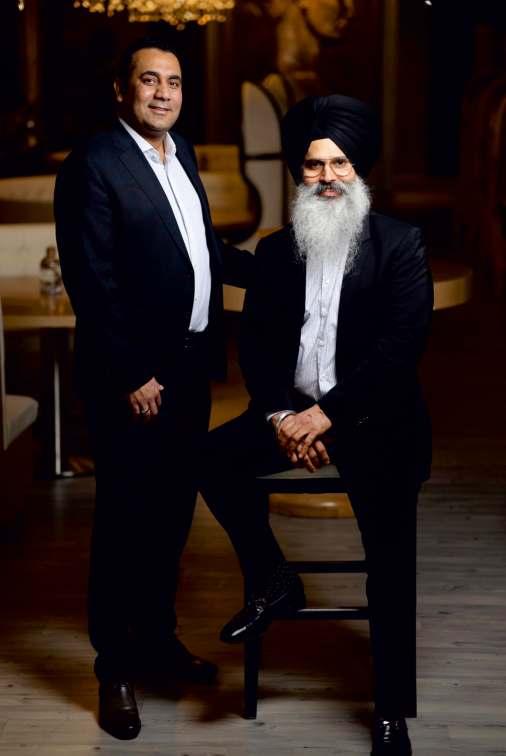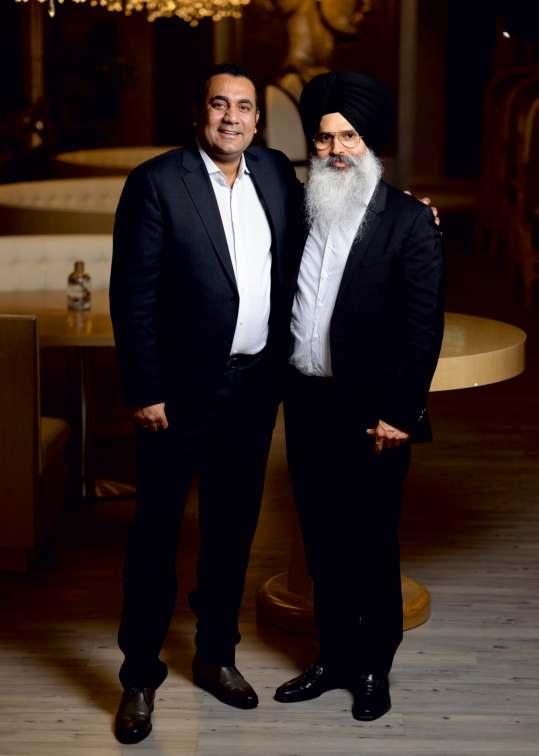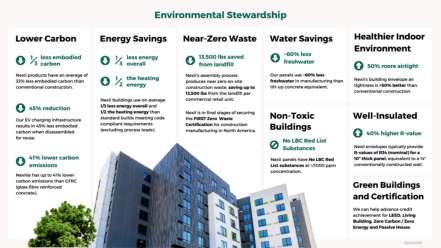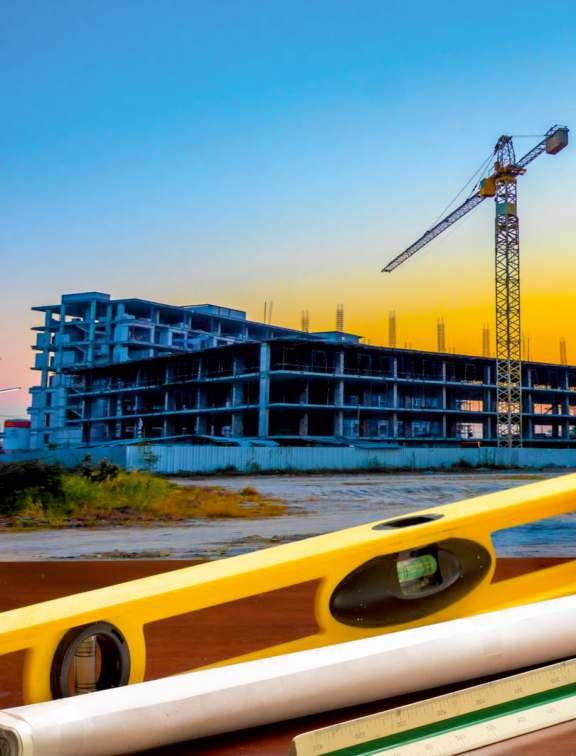

We Shape our Buildings; thereafter, they Shape us. Shape they Shape us.









Construction is a dynamic industry that requires
effective leadership to navigate the challenges that arise. Pioneering leaders are those who are able to think outside the box and bring fresh ideas and approaches to the construction industry. They possess certain key qualities that enable them to lead their teams to success.
Leaders in construction possess innovative thinking, which enables them to come up with new and creative solutions to complex problems. They are able to think outside the box and challenge traditional approaches to construction. They embrace new technologies and techniques to make the construction process more efficient and cost-effective.
Pioneering leaders have a strategic vision of where they want their organization to go, and they are able to communicate this vision effectively to their team members. They set clear goals and objectives and create actionable plans to achieve them. They are able to anticipate future challenges and opportunities and adapt their strategies accordingly.
Effective communication is critical for pioneering leaders to inspire and motivate their teams. They are able to communicate their vision, strategy, and expectations clearly and effectively, using a variety of communication channels. They are also able to actively listen to their team members and provide feedback that enables them to improve their performance.

Pioneering leaders understand the importance of collaboration in the construction industry. They are able to work effectively with architects, engineers, contractors, and other stakeholders to achieve common goals. They are able to build strong relationships with their team members and stakeholders, which enables them to foster a positive work environment.
They are not afraid to take calculated risks to achieve their goals. They are able to assess the potential risks and rewards of a decision and make informed choices. They understand that taking risks is essential for innovation and growth and are willing to embrace change to stay ahead of the curve.
In the rapidly changing construction industry, adaptability is essential. Pioneering leaders are able to adapt to new situations quickly and effectively. They are able to pivot when necessary and make bold decisions in the face of uncertainty. They are able to stay calm under pressure and think creatively to find solutions to complex problems.
Pioneering leaders in construction possess a unique set of qualities that enable them to lead their organizations to success in the rapidly evolving construction industry. They possess innovative thinking, strategic vision, effective communication, a collaborative approach, risk-taking, and adaptability. By cultivating these qualities, leaders can inspire their teams to achieve unprecedented success and drive the construction industry forward in 2023 and beyond.
The latest edition of Insights Success sheds light on the Top 10 Pioneering Leaders in Construction 2023 who are enabling novelties and advancements in the construction niche with sheer commitment towards innovation with a vision to revolutionize the industry in the near future. Flip through the pages and have a delightful read! A bh ish ek J o sh i








Featured Person
Brief Company Name
Ardent Services LLC ardent.us

Danny has been completing a myriad of complex projects in a variety of industries and fulfils the services promptly.
Crystal Consulting Inc ccigroup.ca
Garry and Kuldeep are experienced leader in the construction with expertise in Budgeting, Value Engineering, Contractors, Sales, and Project Estimation.
Balfour Beatty balfourbeatty.com
Nexii
Leo connects with the youngsters through his belief which implies it is critical to engage the minds of the younger generation, empowering and equipping them with the tools and techniques to ensure the continued success of the country as we build back better and more sustainably.
Stephen is a serial entrepreneur who has founded companies in various industries—including in manufacturing, retail, real estate, investment banking, healthy restaurants (LYFE Kitchen) and food brands (Luvo)—raising over a billion dollars in the process.
Swati is an accomplished business leader, with diverse sector experience, leading the commercial, legal, ethics, governance, compliance and risk functions, for Skanska UK Plc. She is highly motivated and achievement-oriented with strong collaboration skills.
Danny Cavalier Director of Business Development Garry Sangha CEO and Kuldeep Singh Chohan COO Leo Quinn CEO Building Solutions nexii.com Stephen Sidwell CEO Shanska UK Plc skansha.co.uk Swati Paul Director, and Executive Vice President, Commercial & Legal


The wonderful thing about construction is that your hands do the talking. My superior building capability, a strong sense of community, and spiritualism tied me closely to those that I worked for and those that worked for me.

O V E R S T O R Y


Ahouse is often made into a home by the loving

bonds of a family that lives in it. But even the barebones construction of a house requires a whole lot of time, dedication, attention to detail, and love for the job because only then a quality house can be built, one that lasts a family for generations to come.
This cohesion of construction and family that makes a home is exemplified by Crystal Consulting Inc – a construction business that is being functioned by the Sangha family and operates on family values. Garry Sangha is the CEO of the company, and his brother-in-law Kuldeep Singh Chohan is the COO . Both of them followed their father’s legacy, Ajit Sangha, in the construction business. After moving to Canada from a small farming village in Punjab, Ajit worked as a laborer in a drywall company in 1997. Eventually, drywall would come to describe the family legacy.
When Garry and Kuldeep approached Ajit to form CCI, they didn’t have a substantial background in the BC Construction industry, and their assets were minimal to back the start-up. What the family had was the belief that much more could be done in the space of this industry and was waiting for someone innovative to occupy it.
Crystal Consulting (Drywall) Inc. was then founded in 2005. As a drywall company, it would initially work in multi-family concrete residential projects. Today the family has progressed to being a major presence across the BC construction space. Since then, Crystal Consulting has grown immensely and has introduced CCI Waterproofing, Crystal Consulting Group of Companies, CCI Alberta, Kanin Construction Management, CCI Masonry, and the CCI Group Mental Health Society.
Garry says, “What we build must have value. I grew up playing sports, and similarly, in business, it takes time, dedication, and practice to be good. The thing about family, sport, and business is that everyone must share a vision/belief system and work to common objectives to achieve real success.”
Kuldeep adds, “It is a blessing what we have done as a family. While we all work hard to achieve success, we are not so vain to think we did it on our own. Everybody who has, does, or will work with us makes a real contribution to how we move forward. Moreover, as a business, we are grateful for the trust our clients give when awarding us work and thankful to all the trades and suppliers that work with us to realize our construction objectives.”
In an exclusive interview with Insights Success , Garry and Kuldeep share an immigrant family’s dream of building a legacy that lasts.
Below are the highlights of the interview:
Briefly describe your professional journey up until now.
Garry Sangha: I grew up in a loving and supportive family that emphasized family values, a high degree of community involvement, and an honest work effort. Alongside my brother-in-law Kuldeep Singh Chohan, we joined my father, Ajit Sangha, in starting Crystal Consulting Inc.
We were already working together on construction projects, and it was time to branch out on our own to build a family legacy in Canada, much as my father had in India. We sacrificed and made every necessary effort to grow our business. We had a real desire to distinguish ourselves in the scale of the project we could take on and to honor our commitments to our clients.
This clear differentiation is what allowed us to be partners with the largest developers in Canada and to expand our business scope to the extent that today we too are becoming a major developer with the intention to quickly approach in scale that of our peers who we have served for the last two
We are unique in how we approach construction and in our ability to deliver the highest quality of work on schedule. Our systemized approach is a massive CCI strength.
decades and with every intention to continue serving. We intend to be one of BC’s anchor companies, one that has an obvious impact on the skylines in the major cities in the province.
Kuldeep Singh Chohan: Like many new immigrants to Canada, I found my start in my adopted country in construction. Early on, I found that I had a passion for the trade and quickly became a master in framing, drywalling, and finishing. I also had a keen eye for investing and built a portfolio of properties locally and in the US.
I married Sandeep Sangha and, as such, became a son to Ajit Sangha, the Patriarch of the family, and Brother to Garry Sangha. We were a powerful team and together formed Crystal Consulting Inc. I took the operational lead from the start building up the company’s field capabilities at impressive speed. Today, I am highly respected in the
construction community as an inspiring leader who is as fair in dealing as strong technically in his construction knowledge.
What challenges did you face along the way?
Garry Sangha: I could say that we faced the challenges that any other immigrant did, but really, I view my heritage as a strength and my upbringing as something to be leveraged. The real challenge is the speed of growth and backfilling policy in structure to ensure that we never make the same mistake twice.
Growing a business means always being outside your comfort zone and willing to take on substantive personal risk every day. A leader needs to have a thick skin and the confidence to move forward even when others place doubt in your mind. Truly, you also have to work on yourself to overcome doubt and ride on optimism. You can make mistakes in business, but only if you are always in an adaptive and dynamic operating mode.
Kuldeep Singh Chohan: I broke into the industry despite a language barrier. The wonderful thing about construction is that your hands do the talking. My superior building capability allowed me to shine. Moreover, a strong sense of community and spiritualism tied me closely to those that I worked for and those that worked for me. I am very giving of my time, contributing to community projects and causes. I live by the example of the adage, ‘what you give is what you get.
’


What significant impact have you brought to the Construction industry?
Kuldeep Singh Chohan: We built one of the largest construction forces in BC. I am known across the province for my work, and I attract, mentor, and guide new recruits into the family business at a rapid pace. I try to embody inclusiveness, and while I am quiet, I speak with my actions, moving the workforce to achieve an amazing amount of new building construction at a quality that is difficult to match.
Garry Sangha: Kuldeep and I are totally focused on schedule and quality. I truly believe that we are unique in the province in how we approach construction and our ability to deliver the highest quality work on schedule. Our systemized approach is a massive CCI strength.

Tell us about Crystal Consulting Inc and its foundation pillar.

Garry Sangha: Crystal Consulting Inc comes out of the broad construction experience we derived in CCI, and it extends much beyond drywall. Our clients recognized the scope of deliverables that we had become proficient in and the fact that our problem-solving capability went well beyond the services we were delivering. The next logical step was to take on the full scope of construction management and include the full scope of trades management formally as opposed to just using technical influence.
Kuldeep Singh Chohan: Family is what makes us strong. We respect each other; we respect those that honor us with their work and those that work for us. Family is a spiral that continuously grows outward. With each new home we build, we add to our family. There can be hundreds of people in a new building and thousands in a new development. We must be fair to those that will invest in what we have built and ensure that their homes are of the highest quality. We build for them that which we would expect for ourselves.
How does Crystal Consulting Inc promote workforce flexibility, and what is your role in it?
Kuldeep Singh Chohan: We have hired and worked alongside thousands of people while we have been in business. We allow people to grow and show them a way to succeed. Many of the people that have worked for us have left to start their own businesses. We support this entrepreneurship and celebrate their initiative.
While those that work for us must adhere to our construction practices, we support them in many ways and see their family as our family. We do our best to provide a path for people to get to where they want to in life. As part of the community, we must have empathy and flexibility.
Garry Sangha: Construction is a highly structured business. Process, systems, and safety are paramount. The schedule is not subject to negotiation. That said, the business is keen on professional advancement and inclusion. We are an open workplace that welcomes all qualified and keen individuals into the fold.
Training, mentorship, and promotion based on contribution are integral parts of our culture. We expect loyalty and are extremely loyal to our employees. We understand that daily
life does impact the ability to work, and we are compassionate and flexible in accommodating the vagaries that impact all of us. As a leader, I communicate my expectations clearly and also lay out what is required for each individual to achieve personal success.
What is your take on technology’s importance, and how are you leveraging it?
Kuldeep Singh Chohan: We are always happy to try new tools and methods. Given the scale of our activities, there is always an opportunity to give a new technology or approach a chance. If it works, we adopt it quickly and roll it out across the organization. We are agile in this regard.
Industry standards and community expectations also drive our technology adoption. These days we are paying a lot of attention to sustainability and our impact on the environment. We are always trying to green our building practices.
Garry Sangha: Construction is a traditional field and one of the oldest industries in existence. We all still marvel at the monuments built by ancient cultures that still stand today thousands of years after they were built. We do not expect our structures to still stand a thousand years from now, but we do build to last.
We take the basic foundations of construction and apply modern methods and materials. Automation and connectivity are key features of today’s homes, and we
We developed the CCI Group Mental Health Society to address a common issue in our society.
Being successful in business means that we can have a big impact, not only directionally, but financially in bettering our communities.
Like the developers we serve, we will be a company that leaves a lasting mark on the skylines of our cities.


embrace those technologies as well as standards and methods to achieve sustainability and greener buildings. From a work management perspective, we employ software that improves construction management and communication between all stakeholders.
What will be the next significant change in the construction industry, and how are you preparing for it?

Kuldeep Singh Chohan: Green is the new gold standard. People will measure your quality and value not only on what you deliver but on your ability to show your reduction of GHG consumption or minimal environmental impact.
Garry Sangha: I think more than in the recent path, developments have a focus on community and lifestyle. Buyers have an expectation of superior design and livability as well as unique amenities that enhance daily life.
We take great care in the design phase to architect a building that embodies lifestyle choices for a diverse buying public. Global warming is also a paramount issue, and the building industry has a responsibility to include green technologies and choose less impactful materials and building methods.
What are your goals for the upcoming future?
Garry Sangha: I want us to be an anchor group of companies in BC. We should be recognized as an employer of choice and a substantive contributor to the economy. Our children should be proud of what we have accomplished as a family and behave in ways that are supportive of our community. Like the developers we serve, we will be a company that leaves a lasting mark on the skylines of our cities.
Kuldeep Singh Chohan: I want to see our children benefit from our hard work and continue in our community contributions. They do not have to do what we have done, they can make their own way, but I’d want to see them be generous in spirit.

We developed the CCI Group Mental Health Society to address a common issue in our society. This cause and the support of others is important to us. Being successful in business means that we can have a big impact, not only directionally but financially, in bettering our communities. I want our family to be seen as humble contributors.
What advice would you like to give the next generation of aspiring business leaders?
Garry Sangha: There is no hiding in business. Life is transparent, and what you do as a business leader will affect the longevity of your business and how you are perceived in the community. More importantly, your actions will shape the behavior of your children and those close to you. At all times, you should work to inspire others to be like you.
Kuldeep Singh Chohan: You must always try to be your best and share your knowledge freely. Personal power does not come from hoarding knowledge or keeping secrets. It comes from allowing others to join you in your path and shining the light in the darkness. We have been able to build such a wonderful workforce because we communicate directly and are not afraid to share what we know. It is then up to that person to do what they can with what they learn from you.

Throughout his career, Stephen Sidwell has founded
businesses in a number of different sectors including retail, real estate, manufacturing, investment banking, healthy restaurants (Lyfe Kitchen), and consumer packaged goods (Luvo), raising over a billion dollars in the process.
He is passionate about building businesses that thrive and positively impact their communities. His current mission as a CEO of Nexii Building Solutions is to help transform the global construction industry, using Nexii’s building technology to create a brighter future for people and the planet.
In an interview with Insights Success, Stephen Sidwell shares valuable facts highlighting his professional tenure, his journey and ambitions in the niche.
I was introduced to Ben and Michael Dombowsky in 2018. We decided to partner to create Nexii Building Solutions with the vision of reinventing how the world buildsreducing carbon and waste while increasing efficiency within the construction industry. Ben and Michael are extremely talented inventors with well over forty years in the industry. They invested many years of research and development into the creation of the Nexii system.
Since Nexii’s inception, we’ve focused on proving our system with multiple building types, scaling up operations, and reducing our impact on the planet. In 2021, after just 31 months, Nexii reached unicorn status— a more than $1 billion valuation. It is the fastest company to do so in Canadian history.
At Nexii, our mission is to build a vibrant future for people and the planet. We do this by moving away from carbonintensive materials and creating a new way of building that reduces build times, cuts waste to near zero, and considers the full lifecycle of a building — designing with reuse in mind, creating a circular construction ecosystem.
Buildings and construction are responsible for almost 40% of global carbon pollution. As we grow, we are demonstrating to the industry that our green construction system is a breakthrough solution to reduce emissions.
Tell us about Nexii Building Solutions and its foundation pillar.

Nexii is a green construction company that designs and manufactures low-carbon buildings and products to tackle the climate impact of the built environment. Sustainable and scalable solutions are urgently needed to make net zero buildings a reality.
Our breakthrough material, Nexiite, and building solutions enable the rapid assembly of high-quality buildings with reduced end-to-end carbon emissions, produce near zero waste, and cause less disruption to the community.
Nexii building products, including Starbucks, Popeyes, and Marriott, have been used in client projects. Most recently, we completed the manufacturing of 10 service plaza buildings for the New York State Thruway.
What is your take on technology's importance, and how are you leveraging it?
To fundamentally change how the world builds, technology and innovative solutions are essential. At Nexii, we leverage technology in several ways to make sustainable buildings a reality.
Nexii’s building technology is designed to speed up construction and reduce the overall embodied carbon and energy use of the building. Buildings are precision manufactured offsite and rapidly assembled onsite. Nexii panels have an average of 31% less embodied carbon and Nexii buildings use approximately a third less energy, significantly lowering energy needs and emissions for ongoing building operations.
Nexii’s

building technology is designed to speed up construction and reduce the overall embodied carbon and energy use of the building.


To make net zero buildings at scale a reality, Nexii forged alliances with world-class brands, including Siemens, Honeywell, Trane Technologies, Pella, and Solar Earth. Combining Nexii building solutions with industry-leading technologies enables high-performance buildings with a much lower environmental footprint.

What will be the next significant change in the Construction industry, and how are you preparing for it?
We anticipate there will be many changes for the industry as world events, legislation, and inflation have forced global leaders to have a closer look at high-polluting industries. The evolving economic landscape directly impacts construction, and I have no doubt that there will be an increased focus on efficiency and decarbonization of the industry.
We already see these changes taking place. During COP27, the commitments to cleaning up the carbon-intensive construction industry and reducing energy consumption in buildings emerged as significant priorities. President Biden recently announced the Buy Clean task force with an ambition to cut carbon emissions to net zero by 2050. The US Federal Government has introduced recommendations highlighting low-carbon materials, sustainable processes, and carbon data transparency. This legislation will have a profound impact on the construction industry.
At Nexii, our construction method and proprietary material Nexiite are well-suited to help reach these targets. As a green construction company with a mission to address the climate impact of our built environment, it is wonderful to see that industry and governments are starting to step up and come along with us on this journey. Although it is very positive that these changes are taking place, our industry has been lagging on innovation and sustainability for decades, and we need to see action in this decade!
At Nexii, we say, “change the blueprint, change the planet,” and our goal is to scale up our company to maximize our positive impact on the world. We want to bring Nexii’s breakthrough products and buildings to more markets to meet the growing demand for truly sustainable construction.
When I look back at my career, I am proud of all of my endeavors. If I were to give the next generation some advice, it would be to do something that you will look back on in 5-10 years and feel proud of.
Whatever you end up doing, you have to care deeply about it. I have always aspired to make a true impact on the world around me, and that has been my driving force.



Influential business leaders are those who inspire and motivate others to achieve success. They possess certain traits and characteristics that set them apart from others. In this article, we will explore the key traits of influential business leaders.

Influential business leaders are visionary thinkers. They have a clear understanding of their organization's mission, values, and goals. They are able to create a compelling vision for the future and communicate it effectively to others. By having a clear vision, they are able to inspire and motivate employees to work towards common goals.
Visionary thinking creates a clear focus for individuals and organizations. It helps them to identify their priorities and goals and to align their actions accordingly. This focus enables individuals and organizations to work more efficiently and effectively towards achieving their vision.
Visionary thinking drives change. By envisioning a future state that is different from the present, individuals and organizations can create a sense of urgency and a desire for change. This can motivate individuals and organizations to take action, to try
new things, and to drive innovation and growth. It creates a clear focus for individuals and organizations. It helps them to identify their priorities and goals and to align their actions accordingly. This focus enables individuals and organizations to work more efficiently and effectively towards achieving their vision.
Influential business leaders have strong communication skills. They are able to convey their ideas and vision clearly and effectively to others. They are good listeners, able to take feedback and ideas from others and incorporate them into their own thinking. They also have the ability to inspire and motivate others through their words and actions.
Strong communication skills build strong relationships. By being able to communicate effectively, individuals can establish rapport with others, build trust, and foster a sense of community. This can lead to better collaboration, increased productivity, and improved morale.
Strong communication skills enhance leadership. By being able to communicate effectively, leaders can inspire and motivate their team, provide direction and feedback, and build a culture of trust and collaboration. This can lead to increased employee engagement, improved performance, and better results.
Influential business leaders are decisive. They are able to make tough decisions quickly and effectively. They are able to analyze complex situations and make decisions based on their experience, intuition, and data. They are also able to communicate their decisions clearly and effectively to others.
Decisiveness increases productivity. By making quick and effective decisions, individuals and organizations can save time and resources. They can avoid wasting time and energy on indecision or delay. This increased productivity can lead to greater success and the achievement of goals.
Decisiveness improves problem-solving skills. By
analyzing information and making decisions quickly and effectively, individuals and organizations can develop their problem-solving skills. They can learn to identify the root causes of problems, evaluate options, and take action to resolve issues.
Decisiveness builds confidence. When individuals and organizations make decisions quickly and confidently, they demonstrate their competence and expertise. This confidence can inspire trust and respect from others, leading to greater opportunities and success.
Influential business leaders are resilient. They are able to bounce back from setbacks and failures. They are able to maintain their focus and commitment to their vision, even in the face of adversity. They are also able to learn from their mistakes and use them as opportunities for growth and improvement.
Influential business leaders have high emotional intelligence. They are able to understand and manage their own emotions effectively. They are also able to empathize with others and understand their perspective. This allows them to build strong relationships with employees, customers, and other stakeholders.
Influential business leaders are strategic thinkers. They are able to see the big picture and develop strategies to achieve their vision. They are able to analyze trends, anticipate challenges, and develop plans to address them. They are also able to adjust their strategies as needed to respond to changing circumstances.
In conclusion, influential business leaders possess a unique set of traits and characteristics that enable them to inspire and motivate others to achieve success. By exhibiting visionary thinking, strong communication skills, decisiveness, resilience, emotional intelligence, and strategic thinking, influential business leaders are able to create a positive impact on their organizations and the wider business community.

The global construction sector is undergoing
significant advancements with paradigm shifts in standard operating methods. Being an effective leader in the construction sector requires more than strong managerial skills. You also need to possess and develop strong leadership skills, to inspire others to perform at the highest level to support the work to be done.
Effective construction leaders are able to identify the needs of a situation, identify the needs of the individuals performing the work, identify the needs of the organization, and then compel individuals to act in a way that benefits everyone involved in a particular project. Given the complexity of certain projects, there is a need for professionalism among the construction project participants. It is also essential to meet the objectives and aspirations of the stakeholders, in the most innovative, imaginative, and value-adding manner for the benefit of the client and all concerned.
To realize the goals and objectives for the construction industry, it is important to develop authentic leaders and followers to set the vision for improving the construction industry’s performance by enhancing its capacity and capability in each country concerned. Many paradigms for leadership have been developed.
Innovative, holistic leadership is critical to construction projects, in the management of construction businesses , and to industry development as a whole. Swati Paul is striving for continuous improvement, while adhering to all these fundamentals.
Currently Working as Director at Skanska UK Plc and Executive Vice President, Commercial & Legal, she aims to drive the business forward while implementing immersive strategies.
In an exclusive interview with Insights Success, Swati shares her professional tenure and highlights her journey so far in the construction niche.

Below are the excerpts from the interview:
Briefly describe your professional journey up until now.
“I am delighted to be sharing my journey with you. I work for an amazing global business, and I am proud of all I have been able to do. Skanska UK Plc is a dynamic, progressive company. I’m a board director, the head of the legal, commercial, and ethics functions of a business with revenues in excess of £ 1 billion.
I chair a number of internal committees including the ethics committee. My role also includes leading governance, risk, insurance and compliance. This is an unusual portfolio of responsibility, but one that sits well with my diverse sector experience.
Skanska UK Plc specializes in building and complex and often high-value projects: such as the HS2 (high speed rail) project motorways, and major commercial developments which have shaped the skyline of London and other major cities. Our clients are both governments and the private sector. Funnily enough, I learnt to fly as a businesswoman at an airport – not literally, but metaphorically.
I was General Counsel and Company Secretary, for six years at one of the fastest-growing British Airports (Luton) (LLA). International shareholders owned LLA. There, by being on the main board as well as being the General Counsel, I learnt how to deal with a wide range of stakeholders.
I came to the role of General Counsel from having originally trained and worked in large corporate law firms in London. Work in these firms involved very long hours, complex deals and international travel.

What challenges did you face along the way?
It was a highly competitive environment, and I aspired to become a partner. However, once I had children, the demands of this particular career were simply too high for me.
Swati Paul, Director Skanska UK

Plc, Executive Vice President,Commercial and Legal
Skanska UK Plc


I tried to find a more family-friendly way of working. I got a job at the energy regulator and then as an in-house lawyer for companies in manufacturing and rail, working part-time. At the time, I did not see a clear path forward to progress my career and remained on the “mommy track.” This was helpful from a time perspective and frustrating from a career progression perspective. However – I was always committed to learning and improving.
When I joined LLA, I quickly recognized that limiting my contribution to advising on the law, did not give me the immediacy of the business impact I was seeking. I was seeking a role where I could influence the commercial success of a business, which both LLA and now Skanska have done.

This journey has meant facing many personal challenges–being the best professional I can be; learning how to navigate organizational cultures; discovering how to broaden my skillset beyond just legal; risking leaving the security of one sector, or one established role; softening my perfectionism; making myself heard as a woman in a man’s world; balancing being a wife, mother and a committed businesswoman; learning how to step up and serve on a board.
What significant impact have you brought to the Construction industry?
I came into construction relatively recently. I love this sector! The scale and scope of what we do, and the culture of this company, allows me ample opportunity to be the businesswoman I am. I also bring diverse life experience as I was born and brought up in London but with a different heritage.
It is really important to me that I work in accordance with my values of honesty, integrity and “to do the right thing,” which accords with Skanska’s values and code of conduct. Diversity and inclusion are in my lifeblood. I am also the Executive Sponsor of the “Ability Network” within Skanska UK.
This focuses on making our workplace a place, where those with any and all forms of disability and/or carers’ responsibilities can thrive and contribute fully to our success.
I tried to find a more familyfriendly way of working. I got a job at the energy regulator and then as an in-house lawyer for companies in manufacturing and rail, working part-time.
Where do you envision Skanska UK Plc and what are your future goals for the company?
My goal is to drive the business forward. Accordingly, the changes that I have implemented so far include proactive management of the legal function with an increased focus on digital change, refreshing how the company deals with ethics, introducing a more structured approach to enterprise risk management and reviewing existing commercial processes with a focus on recovery.
Of course, construction has its origins in traditional working methods and ways. That said, the future is digital. The whole sector will be transformed by a vast range of digital technologies, some of which are already making their way into our worlds, and some of which we are only just beginning to glimpse the possibilities.
This has the possibility of greatly improving speed, safety, time and cost and contributing to an improvement in environmental outcomes.
What advice would you like to give the next generation of aspiring business leaders?
My future goals are to carry on working within this business to drive it forward. I would also like to continue to grow as a professional and improve and adapt my skills. My advice for the budding aspirants, I’d say,
- for your early career – become as technically proficient as you can.
- for your mid-career – build “soft skills,”
- for your senior career – developing people skills are key. Above all – believe in yourself!
Remember, work is only one part of a multi-faceted life. I enjoy yoga, meditation, family, friends and the theatre. This keeps me whole!

The modern construction sector is rapidly evolving
with the integration of new technologies. Technology is enabling advancements in construction by making processes faster, safer, and more efficient. There are various technological advancements that are being used in the construction sector, including Building Information Modeling (BIM), drones, 3D printing, and robotics.


One of the most significant technological advancements in the construction sector is BIM. BIM is a digital representation of a building or infrastructure project that enables designers, architects, and construction professionals to collaborate on a project. It allows them to visualize the structure in 3D, which enables them to identify any design flaws or conflicts before construction begins. This reduces the likelihood of costly errors during the construction process, making it more efficient and cost-effective.
Drones are another technological advancement that is enabling advancements in construction. Drones can be used to survey construction sites, providing real-time data on project progress, as well as identifying potential safety hazards. This allows construction professionals to make informed decisions and adjustments in real-time, improving the safety and efficiency of the construction process.
3D printing is another technology that is enabling advancements in the construction sector.


3D printing allows construction professionals to print building components, such as walls and roofs, quickly and efficiently. This reduces the time and costs associated with traditional construction methods and enables construction professionals to create complex and intricate designs that were previously impossible.
Technology is also enabling advancements in automation, allowing companies to automate many of the manual processes involved in the supply chain. For example, autonomous vehicles and drones can now be used to transport goods, reducing the need for human intervention and improving efficiency. In addition, robotic process automation (RPA) can be used to automate repetitive tasks, such as data entry, freeing up employees to focus on highervalue tasks.
Technology has enabled the automation of many processes involved in the construction niche, such as picking and packing, inventory management, and shipping. This has resulted in improved speed and accuracy, lower costs, and reduced errors. Automated systems such as conveyor belts, automated guided vehicles (AGVs), and autonomous robots have made it possible to handle high volumes of goods with minimal human intervention.
Finally, artificial intelligence (AI) is also enabling advancements in the supply chain and logistics sector. By using AI-powered algorithms to analyze data, companies can identify patterns and trends that would be difficult for humans to detect. This can help improve forecasting accuracy, optimize processes, and reduce costs.
Technology enables significant advancements in the supply chain and logistics sector. Real-time tracking of shipments, predictive analytics, automation, blockchain, and artificial intelligence are all helping to improve the efficiency and effectiveness of the supply chain. As technology continues to evolve, we can expect to see even more advancements in the years to come.

Advancements in AI have enabled businesses to use machine learning algorithms to analyze vast amounts of data and identify patterns and trends. This can help businesses optimize their supply chain operations, including identifying the most efficient shipping routes, forecasting demand, and reducing the risk of stockouts. AI can also be used to improve customer experiences by providing personalized recommendations and optimizing delivery times.

Technology has made it possible to track shipments and inventory in real-time using GPS-enabled devices, sensors, and RFID tags. This has resulted in improved visibility, allowing businesses to identify potential issues and respond quickly to delays or disruptions. Real-time tracking has also enabled more accurate forecasting and demand planning, resulting in better inventory management and reduced waste.
Advancements in technology have enabled predictive analytics to be used in the construction niche. By analyzing data from various sources, such as weather forecasts, traffic patterns, and historical sales data, predictive analytics can help businesses optimize their supply chain operations. This includes identifying the most efficient shipping routes, forecasting demand, and reducing the risk of stockouts.
Another key advancement enabled by technology is predictive analytics. By analyzing historical data and using machine learning algorithms, companies can now predict demand patterns and optimize routes to reduce costs and improve efficiency. This allows companies to make datadriven decisions and ensure that they are always operating at peak efficiency.
In conclusion, technology has had a significant impact on the construction niche, enabling advancements in automation, real-time tracking, predictive analytics, blockchain, and AI. Businesses that adopt these technologies can improve efficiency, reduce costs, and provide better customer experiences, ultimately gaining a competitive advantage in the marketplace. As technology continues to evolve, we can expect to see even more advancements in the construction niche in the future.
Robotics is another technological advancement that is enabling advancements in the construction sector. Robots can be used for a variety of tasks, including bricklaying, welding, and demolition. This reduces the risk of injury to construction workers, and also improves the speed and efficiency of the construction process.
In conclusion, technology is playing a vital role in enabling advancements in the modern construction sector. From BIM to drones, 3D printing, and robotics, these technological advancements are making construction faster, safer, and more efficient. With the continued integration of new technologies, we can expect to see even more advancements in the construction sector in the years to come.





